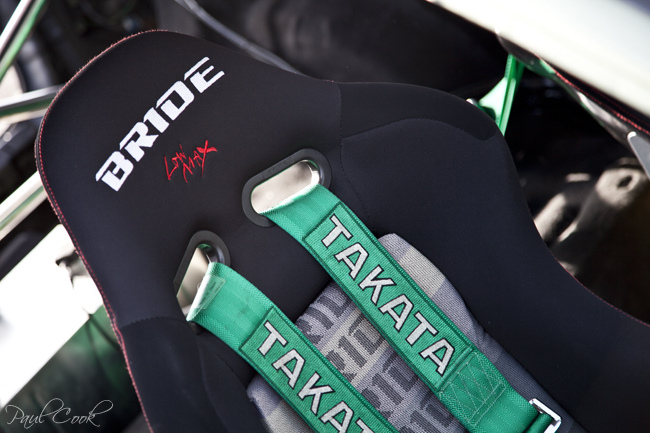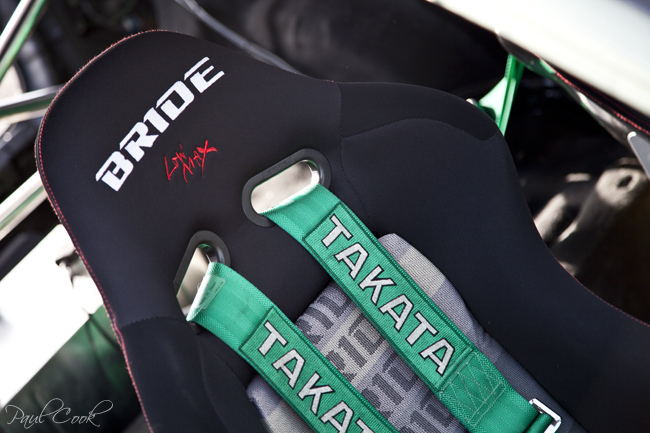
Cook24v via flickr
The manufacturer has been charged in the US for violations during nationwide recall linked to explosive airbag inflator failure. The company is suspected in making misleading statements and concealing information about dangers of airbags. The airbags can explode under certain conditions, gushing with pieces of metal in the car’s interior.
Presumably, the problem has resulted in 11 deaths and 184 injuries in the United States. American automakers are recalling 42 million cars of 19 brands to replace 70 million inflatable airbags manufactured by Takata.
According to the publication, the Ministry of Justice will agree with Takata to hold an additional independent monitoring of safety procedures in the company. Due to high financial costs of recall, Takata may cede control over the company to one of the industry competitors.
Earlier in October, The Wall Street Journal, citing its own sources, reported that Takata Corporation’s management is considering a possibility of bankruptcy proceedings.
According to the newspaper’s sources, the company is preparing to appeal to the US Court for protection from creditors. The latter are seeking compensation for losses occurred due to the global scandal with deadly airbags.
According to some experts, this decision will allow the company to gain a more favorable position in negotiations with automakers, who unwittingly became participants of the scandal.
Official representatives of the involved automakers are afraid of such a scenario. If Takata initiates bankruptcy proceedings, it will lose ability to manage cash flow in operate funds. This will inevitably lead to a sharp and complete cessation of supply of serviceable sets of airbags for replacing defective ones, so the recall will be stopped at once.
First reports of problems with Takata’s products appeared back in 2008, when Honda Motor announced recall of 4 thousand cars with Takata’s airbags. In the summer of 2009, after death of a teenager in the United States, Honda additionally recalled half a million cars 2001-2002 years of release.
In the winter of 2009, there was a new deadly accident in the United States, occurred as a result of Takata’s airbag deployment. Relatives of the victim sued Honda and Takata, arguing that the companies have been aware of the defect airbags since 2004.
In 2010 and 2011, Honda recalled another 2 million cars, and BMW, Toyota, Honda, Nissan and Mazda followed its steps in spring of 2013. In the fall of 2013, a driver died in a traffic accident again.
In the summer of 2014, Takata’s representatives said that their products were installed in Honda, Toyota, BMW, Chrysler, Ford, Mazda, Nissan, Subaru and Mitsubishi cars. The automakers continue to hold massive recalls around the world.
At the beginning of November 2014, it became known that Takata’s management ordered staff to destroy results of tests, during which cracks in the inflator were found.
Takata started checking its production after an accident in 2004, when an airbag in a Honda Accord exploded, throwing metal particles into the cabin and injuring the driver.
source: wsj.com, reuters.com
Presumably, the problem has resulted in 11 deaths and 184 injuries in the United States. American automakers are recalling 42 million cars of 19 brands to replace 70 million inflatable airbags manufactured by Takata.
According to the publication, the Ministry of Justice will agree with Takata to hold an additional independent monitoring of safety procedures in the company. Due to high financial costs of recall, Takata may cede control over the company to one of the industry competitors.
Earlier in October, The Wall Street Journal, citing its own sources, reported that Takata Corporation’s management is considering a possibility of bankruptcy proceedings.
According to the newspaper’s sources, the company is preparing to appeal to the US Court for protection from creditors. The latter are seeking compensation for losses occurred due to the global scandal with deadly airbags.
According to some experts, this decision will allow the company to gain a more favorable position in negotiations with automakers, who unwittingly became participants of the scandal.
Official representatives of the involved automakers are afraid of such a scenario. If Takata initiates bankruptcy proceedings, it will lose ability to manage cash flow in operate funds. This will inevitably lead to a sharp and complete cessation of supply of serviceable sets of airbags for replacing defective ones, so the recall will be stopped at once.
First reports of problems with Takata’s products appeared back in 2008, when Honda Motor announced recall of 4 thousand cars with Takata’s airbags. In the summer of 2009, after death of a teenager in the United States, Honda additionally recalled half a million cars 2001-2002 years of release.
In the winter of 2009, there was a new deadly accident in the United States, occurred as a result of Takata’s airbag deployment. Relatives of the victim sued Honda and Takata, arguing that the companies have been aware of the defect airbags since 2004.
In 2010 and 2011, Honda recalled another 2 million cars, and BMW, Toyota, Honda, Nissan and Mazda followed its steps in spring of 2013. In the fall of 2013, a driver died in a traffic accident again.
In the summer of 2014, Takata’s representatives said that their products were installed in Honda, Toyota, BMW, Chrysler, Ford, Mazda, Nissan, Subaru and Mitsubishi cars. The automakers continue to hold massive recalls around the world.
At the beginning of November 2014, it became known that Takata’s management ordered staff to destroy results of tests, during which cracks in the inflator were found.
Takata started checking its production after an accident in 2004, when an airbag in a Honda Accord exploded, throwing metal particles into the cabin and injuring the driver.
source: wsj.com, reuters.com


















